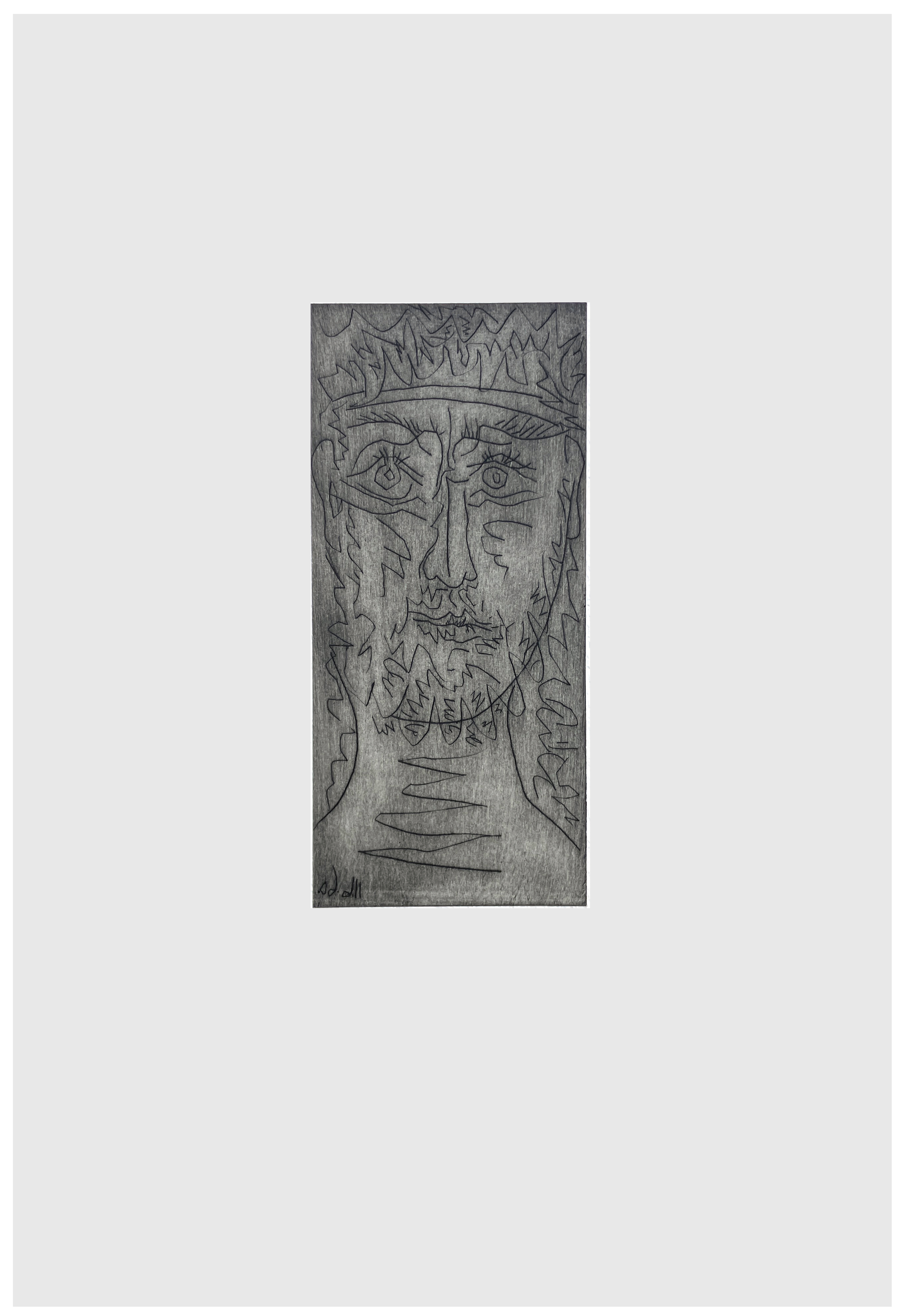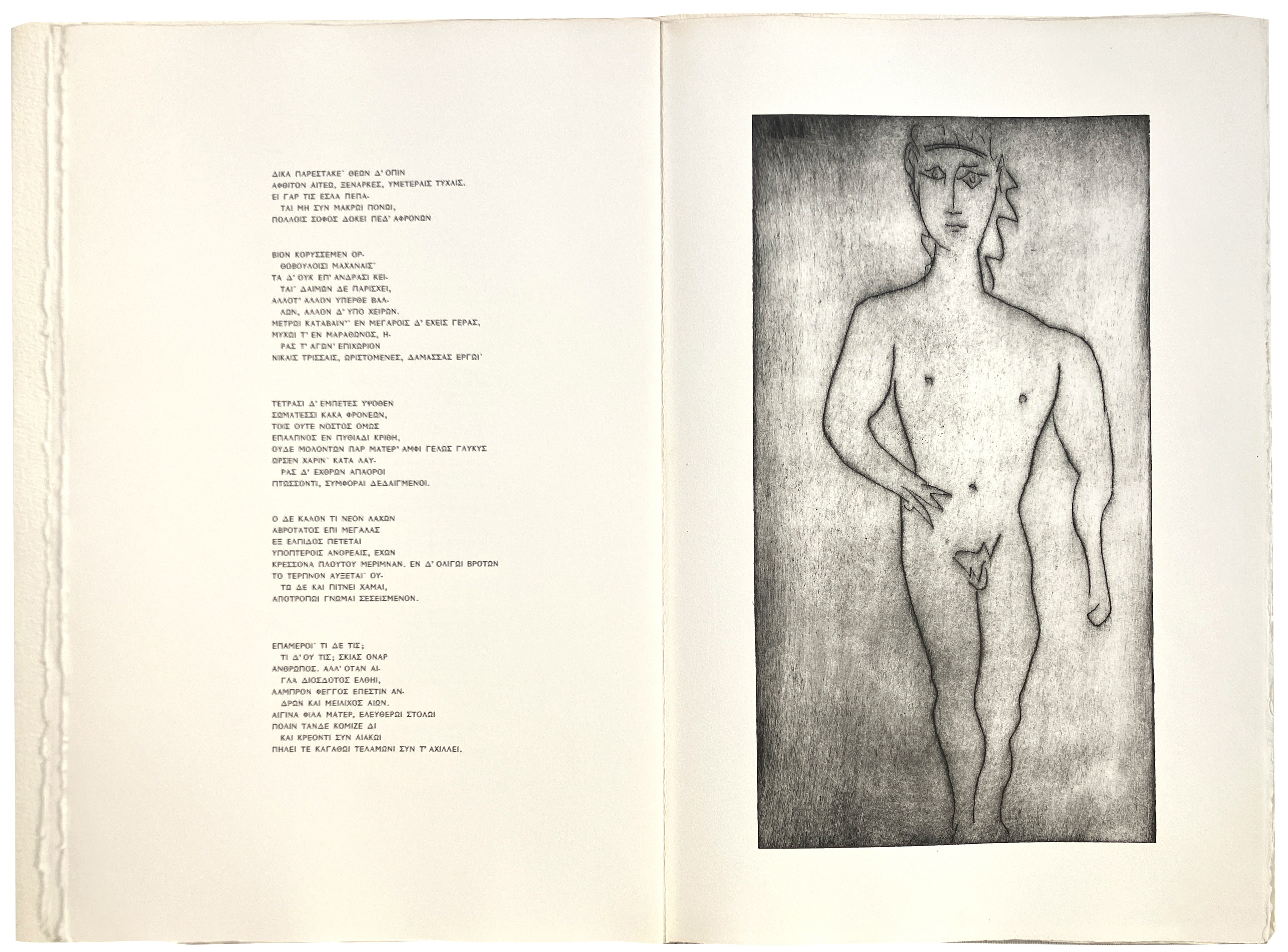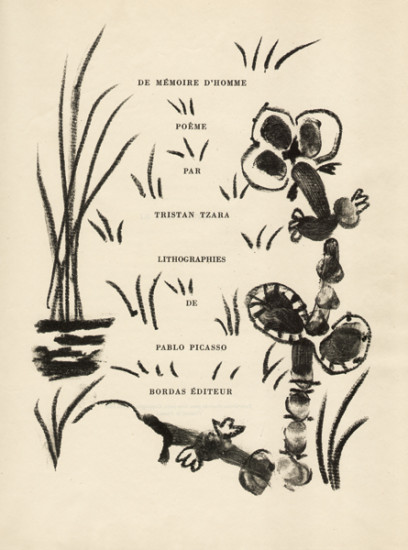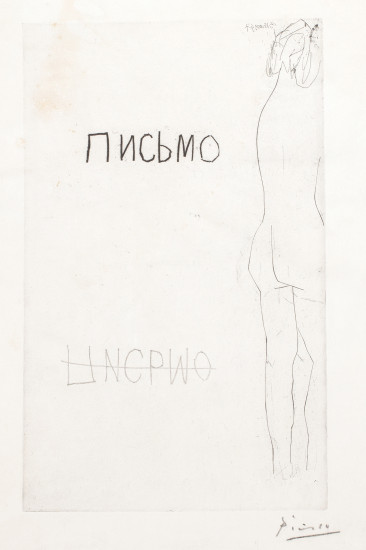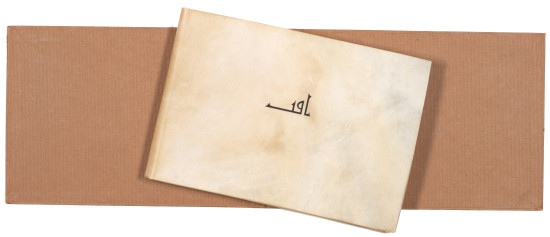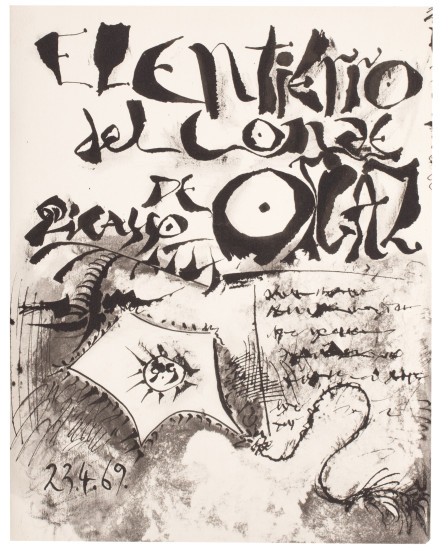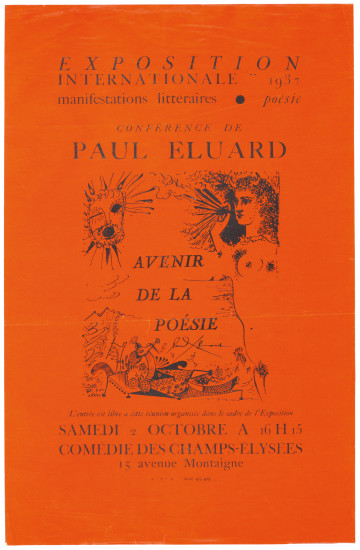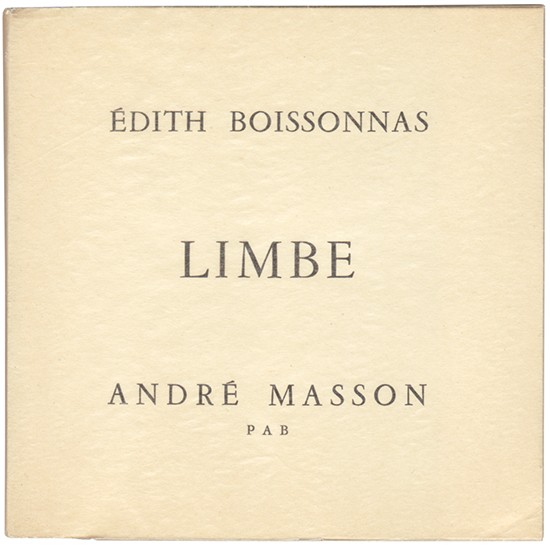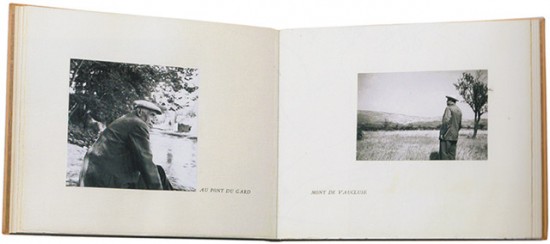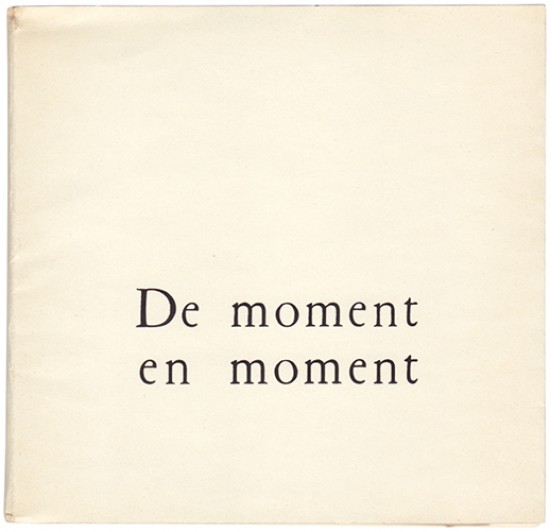VIIIe Pythique
Picasso, Pablo. Pindare. (Jean Beaufret, Trans.)
Alès. PAB. (P[ierre]. A[ndré]. B[enoit].). 1960
A superb example of this superb collaboration between Picasso and PAB.
From the edition limited to 50 copies, with this one of 44 signed and numbered in pencil on the justification by the publisher and artist; six copies numbered in Roman numerals as well as six hors commerce copies were also issued.
Picasso's four original drypoint engravings are titled as follows: 'Homme Grec Barbu' (for the front cover; 'Lutteur avec Lance et Bouclier'; 'Athlète de Face'; 'Athlète au Repos'.
'Pindar's Eighth Pythian Ode was, after Ovid's Metamorphoses (1931) and Aristophanes's Lysistrata (1934), the third and last text from classical antiquity which Picasso illustrated ... At the request of P.A. Benoit, Picasso executed four drypoints on celluloid for Pindar's text ... The Eighth Pythian Ode was presented (i.e. sung) in 446 BC at Aegina, in honour of a certain Aristomenes who had won the wrestling competition at the Pythian Games at Delphi. Pindar celebrates the youth's splendid victory, but also mourns the transience of happiness and glory by evoking the sad fate of the defeated.' (Patrick Cramer).
[Cramer 108; Baer 1077 - 1080].
From the edition limited to 50 copies, with this one of 44 signed and numbered in pencil on the justification by the publisher and artist; six copies numbered in Roman numerals as well as six hors commerce copies were also issued.
Picasso's four original drypoint engravings are titled as follows: 'Homme Grec Barbu' (for the front cover; 'Lutteur avec Lance et Bouclier'; 'Athlète de Face'; 'Athlète au Repos'.
'Pindar's Eighth Pythian Ode was, after Ovid's Metamorphoses (1931) and Aristophanes's Lysistrata (1934), the third and last text from classical antiquity which Picasso illustrated ... At the request of P.A. Benoit, Picasso executed four drypoints on celluloid for Pindar's text ... The Eighth Pythian Ode was presented (i.e. sung) in 446 BC at Aegina, in honour of a certain Aristomenes who had won the wrestling competition at the Pythian Games at Delphi. Pindar celebrates the youth's splendid victory, but also mourns the transience of happiness and glory by evoking the sad fate of the defeated.' (Patrick Cramer).
[Cramer 108; Baer 1077 - 1080].
[8 bifolia: 16 unnumbered leaves]. Folio. (512 x 340 mm). Leaf with title, leaf with Picasso's original drypoint engraving on celluloid as frontispiece, leaf with Pindar's dedication in Greek, two leaves with Pindar's verse in Greek, original drypoint engraving recto, leaf with translator's credit, leaf with Pindar's dedication in French, two leaves with Pindar's verse in French translated by Jean Beaufret, leaf with original drypoint engraving and final leaf with justification and achevé d'imprimer. Loose as issued in original publisher's printed wrappers with flaps, original drypoint engraving on celluloid ('Homme Grec Barbu') by Picasso to front cover, original publisher's patterned paper-covered board chemise with title in black to spine and matching slipcase.
#48558
